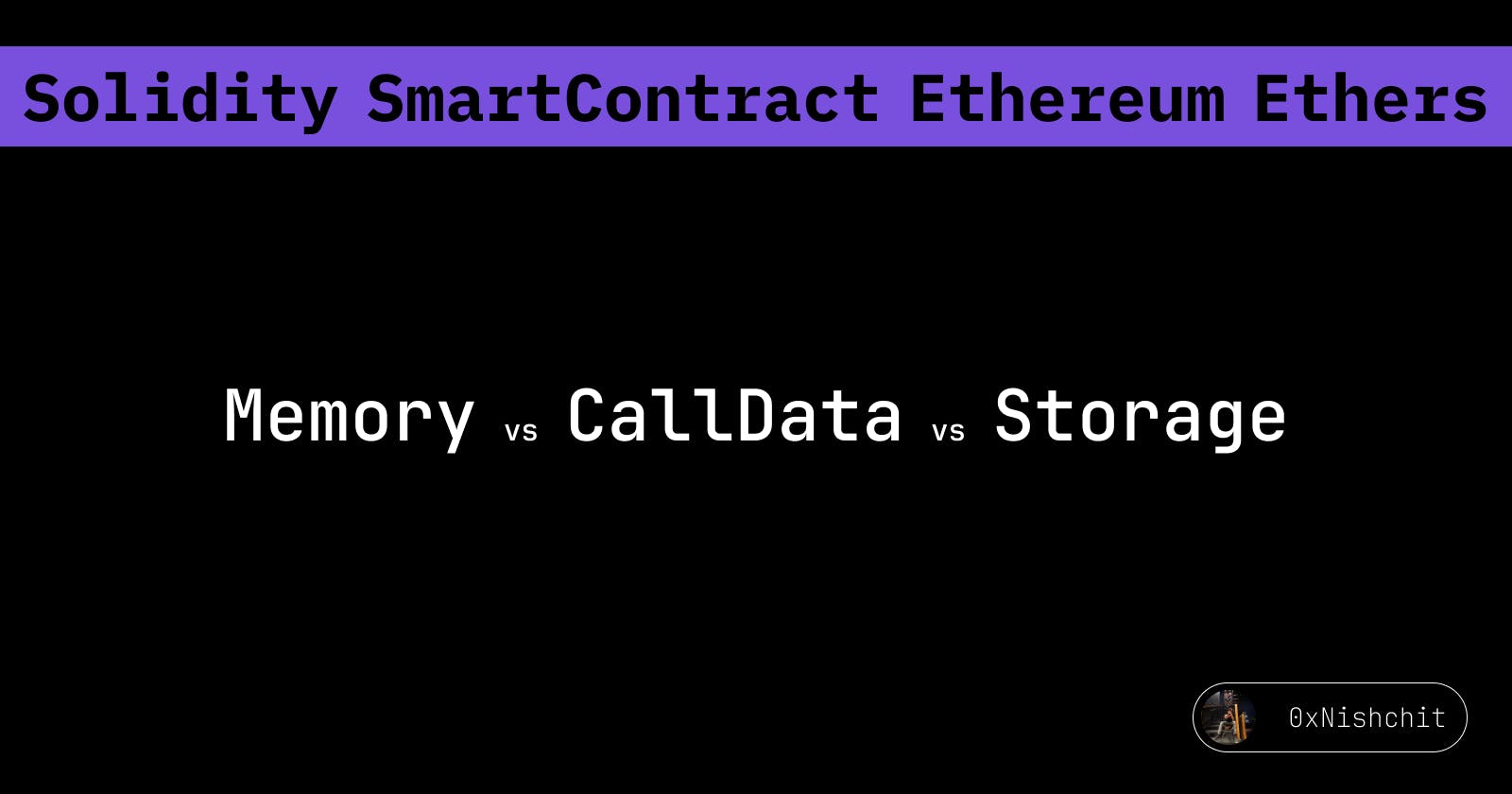In this guide, we will explore the concepts of memory, calldata, and storage in the context of Ethereum smart contracts. Understanding these concepts is essential for developing robust and efficient smart contracts. Let's dive in!
Memory
Memory is a temporary data storage area in the Ethereum Virtual Machine (EVM) that is used during contract execution.
Variables declared inside a function are stored in memory by default.
Memory is cleared after the function execution ends.
It is an expensive resource, and excessive usage can lead to high gas costs.
Calldata

Calldata is a read-only area in the EVM that contains the function arguments and input data.
It is used to pass data from the external world (off-chain) into a smart contract.
Calldata can be accessed through function parameters with the keyword
calldata.Calldata is cheaper in terms of gas cost compared to memory and storage.
Storage

Storage is a persistent data storage area in the EVM that holds state variables of a contract.
State variables are variables that store data across different function calls.
Storage is more expensive in terms of gas cost compared to memory and calldata.
Reading from storage is less expensive than writing to storage, so it's important to minimize unnecessary writes.
Best Practices
Here are some best practices when working with memory, calldata, and storage:
Use memory for variables that are only required during the execution of a function.
Utilize calldata for reading function arguments and external data.
Minimize storage usage and prefer reading from storage over writing whenever possible.
Be mindful of the gas costs associated with each storage operation.
Conclusion
You now have a comprehensive understanding of memory, calldata, and storage in Ethereum smart contracts. Remember to optimize your contract's usage of these resources to minimize gas costs and improve efficiency. Practice these concepts in your development journey, and don't hesitate to explore further for more advanced usage scenarios. Happy coding!
Keep Learning Keep Building...
